Ian Paterson: 'He took a pound of flesh for money'
- Published
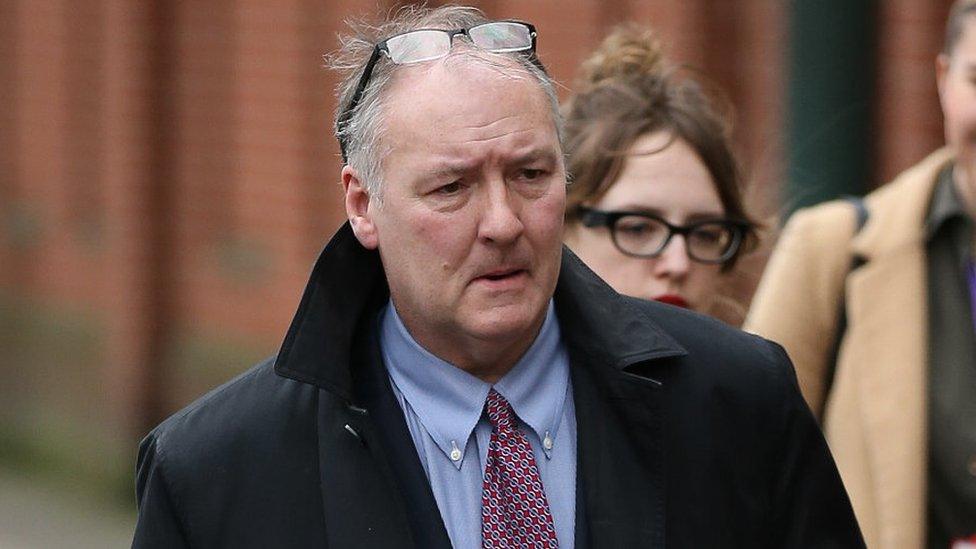
Ian Paterson has been jailed after being convicted of intentionally wounding patients
Breast surgeon Ian Paterson is beginning a jail sentence after being convicted of intentionally wounding patients and carrying out unnecessary operations. Here, more of his victims share their stories.

'He wanted to put my unborn child at risk'
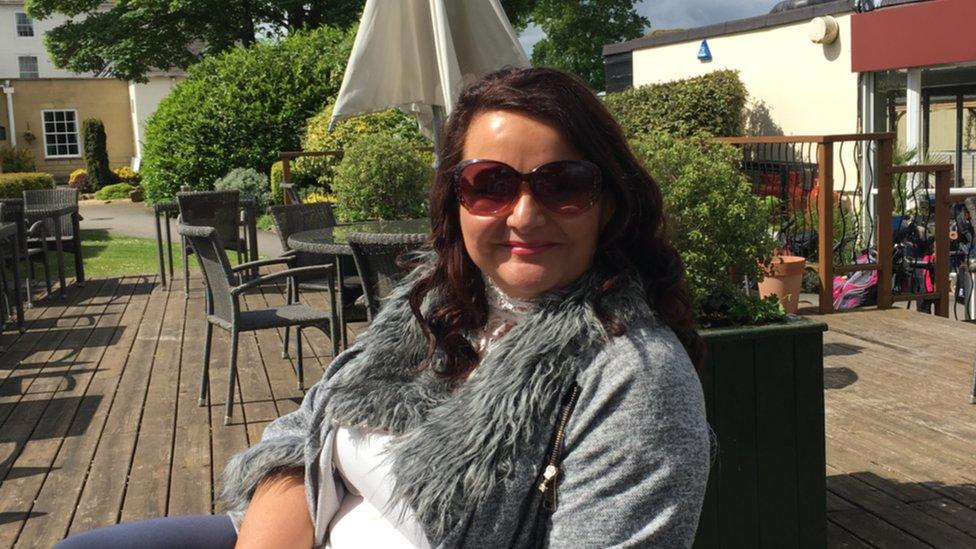
Lisa Lloyd had two operations to remove her milk ducts
Lisa Lloyd was 31 when she experienced a nipple bleed. She underwent two operations in 2007 to remove her milk ducts, at the private Spire Parkway Hospital, after being told by Paterson they could be pre-cancerous growths. The procedure left her unable to breastfeed.
Years later when Mrs Lloyd was pregnant with her second child, she went for a check-up where a scan picked up something in her right breast. She was advised by Paterson to go under the knife - a procedure, she says, which would have put her unborn child at risk.
"I spoke to my specialist and they said you would probably wait, because it wasn't a definite cancer diagnosis, it was just that there was something there.
"For the rest of my pregnancy I was thinking, 'will it turn into full-blown cancer?', and I'm going to die and not see my girls. It really spoilt the latter part of the pregnancy.
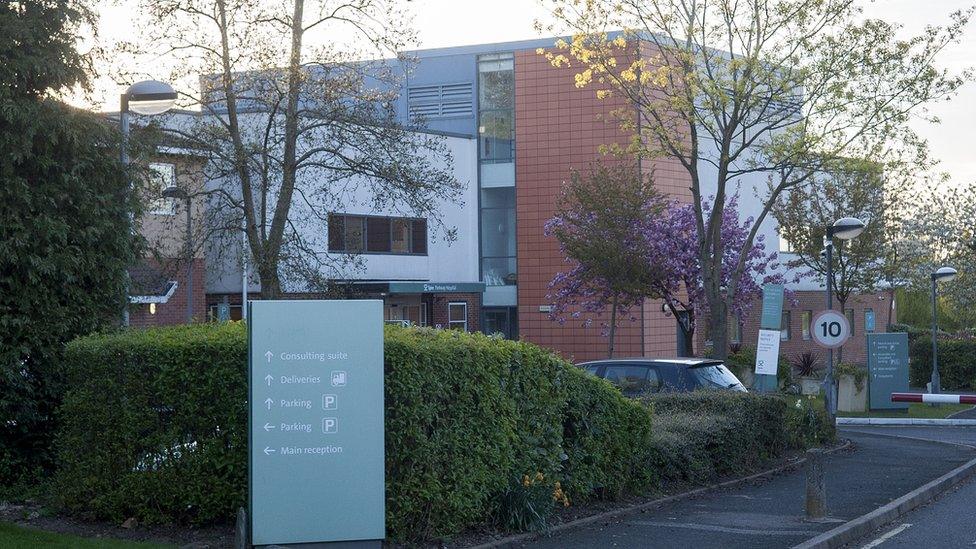
Mrs Lloyd was operated on at Spire Parkway Hospital in Solihull
"I think if I had had the operation at 22 or 24 weeks and gone into labour, she wouldn't have survived."
An ultrasound after the birth discovered the growth had disappeared. A sonographer put it down to "hormones".
Mrs Lloyd, 42, from Redditch, Worcestershire, later discovered that the second milk duct removal procedure and subsequent six-monthly check ups had been unnecessary.
"Some people said it was acting like God, but I think it was for financial gain," she said. "I just can't believe he would put people at risk.
"What he was prepared to do to me while I was pregnant, I will never forget."


'His scalpel bounced off my spine'
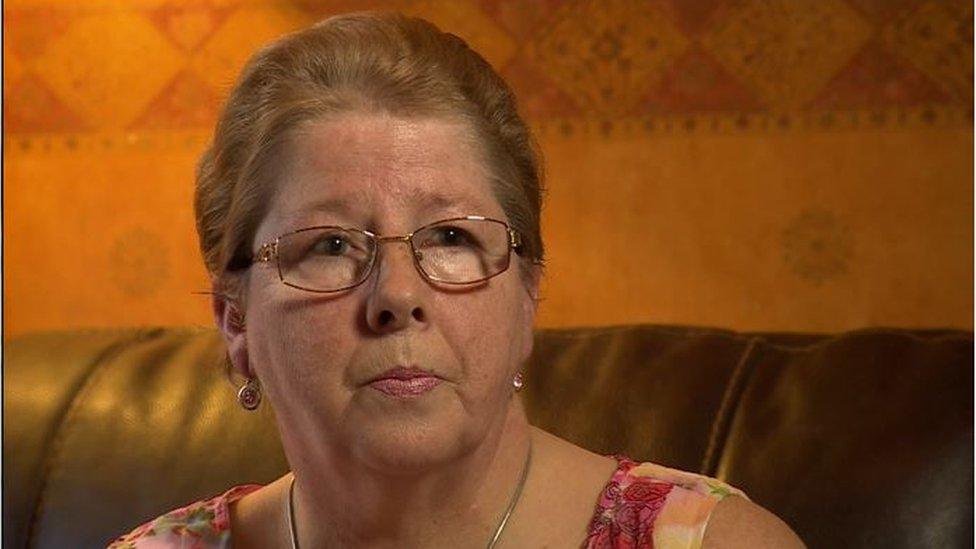
Gill Dallow lost 11 pints of blood during a routine laparoscopy
Gill Dallow was one of Paterson's earliest victims. During a routine laparoscopy in 1996, Paterson cut through an artery, causing her to lose 11 pints of blood and be on a life-support machine for three days.
"Apparently he went in so hard he bounced off my spine," she said.
"[The scalpel] hit the bone, that's how hard he went in. No wonder he went through everything."
Yet despite being suspended by managers at Sutton Coldfield's Good Hope Hospital following an investigation into the incident, Paterson was still taken on in 1998 by Solihull Hospital, where he would go on to operate on hundreds of patients.
A 2013 report by legal expert Sir Ian Kennedy, external found that when Paterson was appointed by Heart of England NHS Trust - which ran Solihull Hospital - a senior manager at Good Hope telephoned a Heart of England medical director to alert him to Paterson.
It is unclear whether these details were passed on to those appointing Paterson, who wanted to recruit him to help clear a backlog of surgery.
A review had been commissioned by the Royal College of Surgeons, which recommended that Paterson should undergo a period of supervised practice before recommencing unsupervised laparoscopic surgery. This was completed and Paterson returned to unsupervised practice.
"We were told he was going to have to be supervised for everything that he did," said Mrs Dallow. "Then we found out he'd just left the hospital.
"If something had been done then, when this happened, none of the other women would have suffered. That's what hurts me the most."
She said more should have been done to stop him practising and he should have been struck off.
"I had massive internal bleeding and they had to open me up and repair everything," said Mrs Dallow, now 54, of Lichfield, Staffordshire.
"I was told that I did have my heart pumped by somebody with their hand, which was scary. If it hadn't been for the theatre staff next door who came in, I wouldn't be here."
Mrs Dallow was awarded £40,000 in damages in 2001, but said: "It's knocked my confidence. I don't really have any friends. I don't go out. I had to stop work. I used to be a registered child minder at the time and had to stop that because I just couldn't cope."
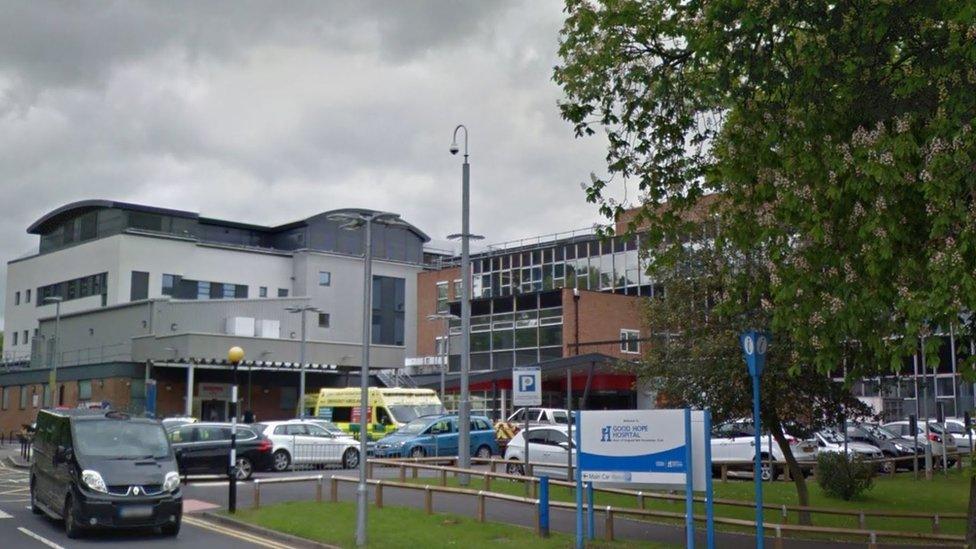
Mrs Dallow underwent the procedure at Good Hope Hospital in Sutton Coldfield

'He was using cancer as a way of making money'
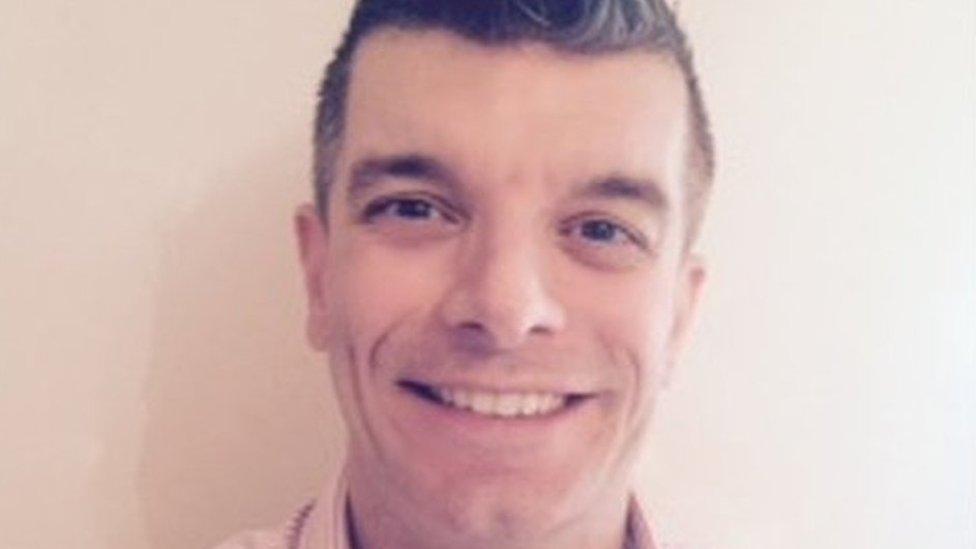
James Fernihough believed he was in the "safest hands" with Paterson
James Fernihough had three lumpectomies in 12 months. He later learned the procedures were unnecessary.
What made his experience even worse was that he had once worked with the surgeon.
Mr Fernihough, 43, of Wall Heath, West Midlands, had taken a job as a trainee theatre practitioner at Little Aston Hospital in 1994.
He later left and in 2003 found a lump on his left side, just below the nipple. His GP recommended he see a specialist, and, recognising Paterson 's name on a list of consultants, he made an appointment to see him at Spire Little Aston, where he was greeted like a friend.
"It was as though we hadn't lost any contact," said Mr Fernihough. "He knew exactly who I was; he remembered. To me I was in the safest hands."
Paterson told him that the lump could be "sinister" and should be removed.
Mr Fernihough said: "Alarm bells rang because two to three months beforehand I told Ian Paterson that I had lost my father to heart disease and lung cancer. What's going through my mind is, 'get it out of me'."
Afterwards he was told it was a fatty build-up of tissue. He had two further procedures and was later told all three should not have been carried out and he should have been offered a biopsy.
"As you can imagine, my world did implode a little and I found it quite difficult to understand why he did what he did," said Mr Fernihough.
"He was using cancer as a way of making money. This isn't a ['playing God'] thing. He took a pound of flesh off me for money."

- Published28 April 2017
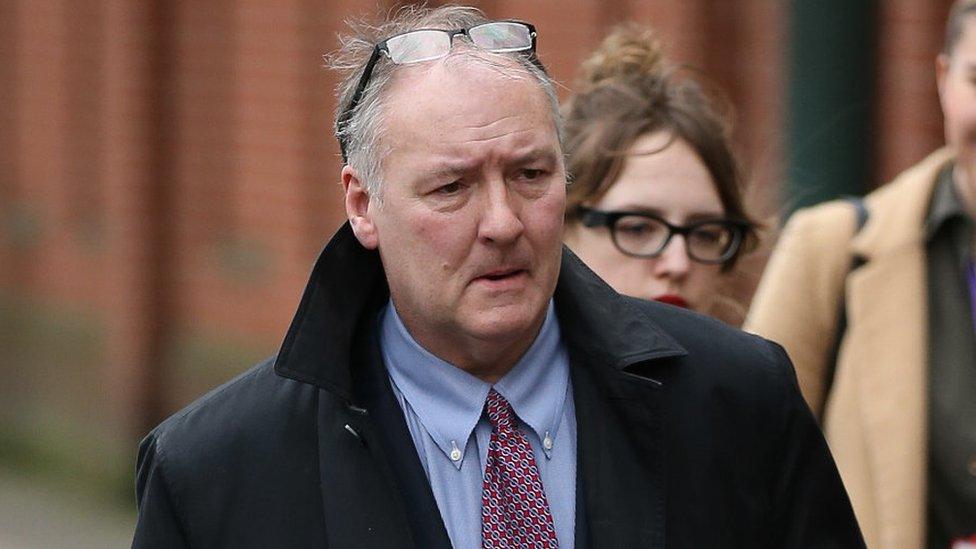
- Published28 April 2017
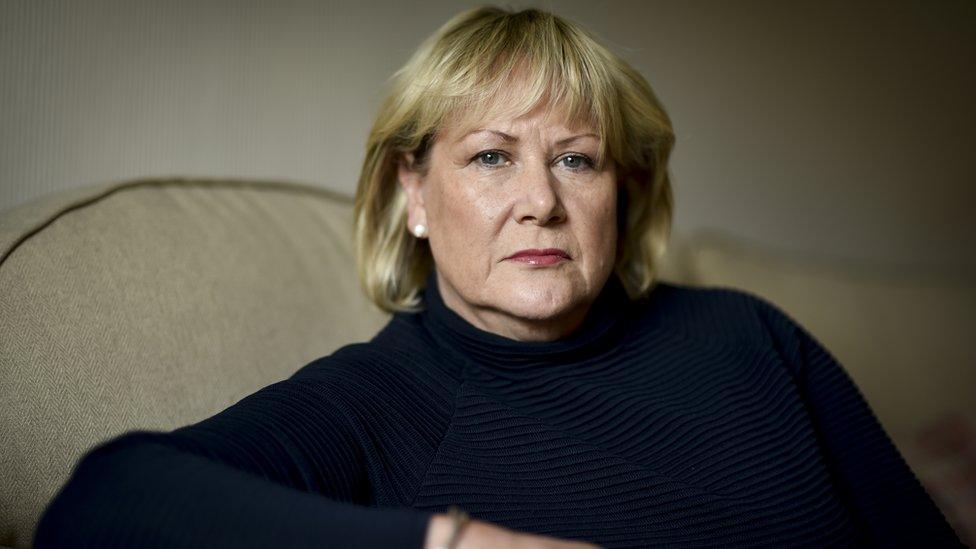
- Published28 April 2017
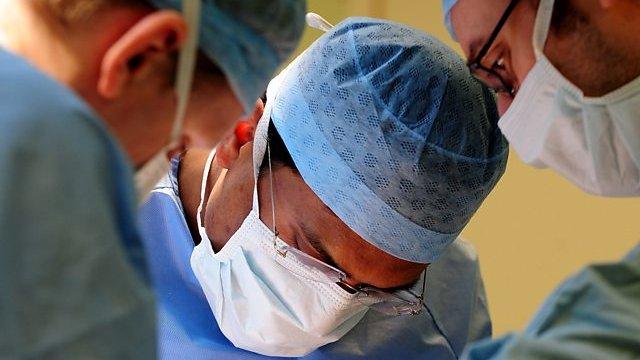
- Published28 April 2017
